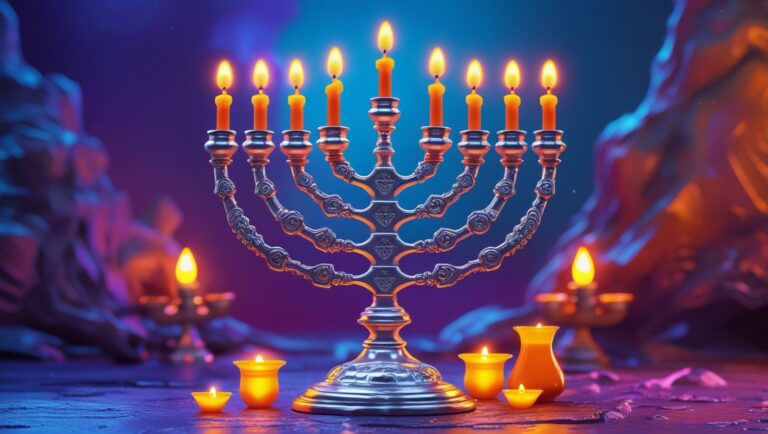The Mikvah (or Mikveh) is not a Mitzvah, but its benefits can far transcend those of one.
Many male Jews underestimate the importance of immersing in the Mikvah every day. Sure, it’s not a Mitzvah, and there’s no obligation codified in the Shulchan Aruch to immerse in it. Aside from a few allusions to the Mishnah, the most well-known being that of Rabbi Akiva who states that “Hashem is our Mikvah”, we only find Kabbalistic reasons to immerse in a Mikvah.
The Mikvah is a body of water of at least 40 Se’in. A Se’ah is 14.3 liters, so about 572 liters total, which is not really so much space. Nowadays Mikvaot turned very fancy and spacious, most of them conforming with all the opinions, even the strictest, and with a heater. Contrast that with when people used to dip in rivers in the middle of the winter. Benayahu Ben Yehoyada, the Av Beit Din and trusted warrior of King David used to break ice in order to dip in it.
The whole word “purification” is a misnomer, since a person who immerses receives far more than just “feeling clean”. In fact, the entire concept of Tahara and Tumah needs to be revised. As I wrote before, Tumah is not some spiritual goo, but a state of fragmentation of the soul. A Tameh person cannot focus on holy things, cannot perform Mitzvot properly, and his prayer lacks power, among other things.
One crucial point is that a person who had a seminal emission (for whatever reason) and didn’t go to the Mikvah yet is absolutely forbidden from using Kavanot of Yichudim. The reason is that the Sitra Achra (the other side, i.e. evil) attaches itself to such a person and can suck the energy from Kavanot and Yichudim becoming powerful. Our Rav from the Yeshiva expressly warned us that we should never be Mekaven or Meyached if we experience such a Tumah.
But the Mikvah is an essential component of Avodat Hashem and there are many wondrous gifts Hashem gives us when we dip in it, which we shall soon see.
Keep in mind that we are talking here strictly about Mikvah for men, as women only immerse after counting the 7 clean days and for a totally different reason.
Purity from the Mikvah explained
Impure thoughts and desires weaken a person’s heart and mind. Purity is an essential aspect of Avodat Hashem. In gross terms, it means having a focused heart and mind that are strong and not bothered by impure thoughts and desires. This makes prayer, study and Mitzvot a lot more acceptable to Hashem.
Rabbi Nathan of Nemirov, the chief disciple of Rebbe Nachman Breslov writes:
Before speaking of the Psalms, the Rebbe said, ‘The first remedy is Mikvah. Das ersht is Mikvah. You must first immerse yourself in a Mikvah.’ He then spoke of the Ten Psalms (this is the Tikkun Haklali)
Another time the Rebbe said, ‘You must be very careful to immerse in a Mikvah on the same day that you have an unclean experience (seminal emission). If you cannot immerse the first thing in the morning, do so any time during the day, even toward evening. It is most important to immerse on the very same day…’
…’Everyone experiences a nocturnal emission at one time or another. I call you to bear witness that these Ten Psalms are a beneficial remedy for this unclean experience. They are an absolute remedy.
Rebbe Natan of Nemirov
We are all energy beings and I don’t mean it in a “new age-ey” sense. As we constantly interact with the world around us, we are bombarded by experiences, feelings, and impressions, and they are often stuck in our energy field. These impressions can hamper the functioning of the body and mind, making a person lethargic, apathetic, unbalanced and even unhealthy.
Many people often think that “thinking a lot” is a sign of wisdom. Nothing could be further from truth. Thinking a lot of thoughts is detrimental and for those who doubt, ask yourself “how many of these thoughts actually translate into positive, concrete things?”. Most of the times these thoughts are just meanderings of the Monkey mind, which clog our capacity to mindfulness and proper focus.
And this is one of the reasons why I believe the Mikvah is also very beneficial for non-Jews who want to come close to Hashem.
Mokhin (divine consciousness) from the Mikvah
The Arizal writes many Kavanot to bring Mokhin to oneself when immersing in a Mikvah. In everything we do, we can bring Mokhin. These are the CHABA”D (Chokhmah, Binah and Da’at) of the specific system we are working with, whether it’s a study session, Mitzvah, prayer, Yichud or even act of kindness.
The Mikvah too is a way of bringing Mokhin to a person, enabling him to get deeper, better insights on life and a better sense of direction on how to act.
When a person goes to pray at Kivrei Tzadikim (graves of righteous people), it’s also vital to immerse in a Mikvah, at least when leaving, but ideally also before. As I explained in a different article, this is because the cemetery is an unclean place filled with Tumah (which are the spiritual entities inhabiting it, as opposed to the souls of the righteous which are pure).
Much like the Mokhin automatically grants a person a certain from the Sitrah Achra (the other side, i.e. evil), so too the Mikvah grants a person extra protection also for his soul.
Divine compassion and Teshuva
The Zohar writes that a person does not receive even 1% of the punishment that is due to her according to the attribute of Justice (Sephira of Gevurah).
If we stop to think about our lives and our flaws, we realize that we all need compassion רחמים (Rachamim) and, that’s a divine attribute that comes from the Sephirot of Tiferet and Keter.
Rav Chaim Vital writes at the beginning of Shaarei Kedusha that without compassion from Hashem, a person would sin and immediately die because the channel of lifeforce connected to him would cease to flow. The fact that a person can sin, even unintentionally, and continue living is awesome proof of Hashem’s incredible compassion toward us.
Of course, Teshuva is an essential component of purification because, as Rabbi Akiva said, Hashem is truly the one giving us the powers of the soul.
The Kav HaYashar by Rabbi Tzvi Hirsch Kaidanover writes:
When a man does some sin, it shows in his face in the form of [spiritual] black fire and if the person does Teshuvah, then the sin goes away and the sin is not visible in his face anymore. But the one who discharges his semen in vain, his impurity stays with him even after doing teshuvah, and only after immersing oneself in the mikveh, does the TUMAT KERI [impurity of wasting the seed and of the nocturnal seminal emissions] goes away.
Kav Ha Yashar ch. 22
Tikkun HaBrit
As mentioned just now, Tikkun HaBrit (the rectification of the covenant) is an essential part of Teshuva. This is because the Brit is the “contract” between Hashem and a Jew, together with keeping the Shabbat.
When someone comes to purify himself, he is aided from above with a holy soul
(Zohar ha Kadosh 58b)
The Mikvah helps bring Tikkun HaBrit and is very helpful in keeping the evil inclination at bay. Moreover, one who guards the Brit, at the same time merits to have the revelation of the secrets of Torah (i.e. Kabbalah), as we see from this quote by Rabbi Naftali Tzvi Horowitz, the Zerah Kodesh:
All the secrets of the Torah come from the foundations of Chochma and Bina, and no person can attain to these levels unless he has already corrected the damage he has done to the Brit, for he has damaged in high places, secret and deep and in the channels that pass through the 18 vertebrae until the Brit, therefore he can’t grasp the secrets of the Torah that come out of those elevated foundations.
(Zerah Kodesh)
He who guards the sign [OT] of the Brit, in every place that it is present: In the Brit Milah or in the Shabbat or in the Holidays, The Holy One Blessed be He guards him for this wherever he may be and hides him from his enemies.
(Tikkune Zohar 21, pag 58a)
Another quote by the Pri Tzadik, Rabbi Tzadok HaKohen of Lublin:
Shabbat is the secret of the Brit, and Shabbat is a Tikkun [Correction] for the damage of the Brit, and it is within the power of every Jew to purify and sanctify himself in Shabbat and to come close to the Holy One Blessed be He, because on Shabbat we can fix the damages due through the renewal of the spirit that occurs as a result of having an additional soul in Shabbat which itself is new every Shabbat
(Pri Tzaddik)
Some other methods for Tikkun HaBrit
The Mikvah is also used for removing the old weekday garments of the soul and receiving the new Shabbat garments on Shabbar Eve with the appropriate Kavanot. As I wrote in another article, on Shabbat morning we also immerse in order to receive the male aspect of the extra soul of Shabbat.
I know we are going a little sideways here, but the issue of the Brit is of the greatest importance and it’s also related to the Mikvah as we just saw.
I write here a little list of remedies for Tikkun HaBrit found throughout the sources:
- Submersion in a kosher Mikvah. It’s even better if it’s cold.
- The comprehensive General Remedy (Tikkun HaKlali) by Rebbe Nachman, may his merit protect us, involves reciting the following set of 10 Psalms on days of potential impurity, God forbid: 16, 32, 41, 42, 59, 77, 90, 105, 137, 150.
- Recitation of the initial 4 Psalms from the Book of Tehillim. Psalms 1 through 4 collectively encompass 310 letters, corresponding to the Gematria value of the term “KERI.
- Embracing acts of Tzedakah and practicing Gemilut Chassadim (Loving-kindness), where the numerical value of Ahavat ha Tzedakah is 612, as is Gemilut Chassadim, illustrating their mutual reinforcement – as found in Sefer Ginzei haMelech.
- Regular recitation of the Keriat Shema, especially the Keriat Shema al ha Mita (Shema before Sleep).
- Engaging in Torah study, with a particular focus on the following topics that serve as atonement for the transgression of wasting seed:
- Tikkune Zohar, Chapter 48, Bereshit Taman (Purity of the Holy). I heard that this is not really from the Arizal, but it’s the Zohar nonetheless.
- Studying 18 Mishna chapters daily, symbolizing the word “Chai” (Life), completing the entire Mishna monthly (Protective Guardianship). This is mostly only for an advanced Mekubal as it’s incredibly taxing.
- Massechet Kelim, Chapter 24
- Massechet Mikvaot, Chapter 7
- Reciting the BERICH SHEME prayer upon the opening of the Torah Ark. This Tefilah (prayer) is attributed to Rabbi Shimon Bar Yochai, as presented in the Holy Zohar. It consists of 130 words, corresponding to the number of years during which ADAM squandered his seed.
Other fascinating insights
The Mikvah has been cherished by real Tzadikim throughout the ages. One doesn’t need to be at the level of Yosef HaTzadik in order to appreciate its effects. As with everything, constancy is key. However, for men seeking real elevation, they should immerse at least when they are Baalei Keri (had a seminal flow).
The Mikvah brings tremendous Kedusha (holiness), and according to Rabbi Chaim Vital, is incredibly effective for seeing God in everything, as it brings purity to one’s spirit. For anyone wondering how to remove blockages from your life, the Mikvah is a very powerful way.
May we all merit its blessings.







